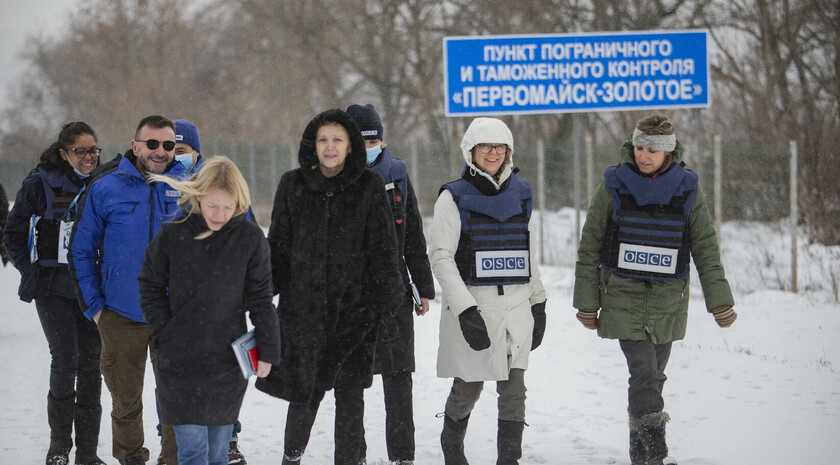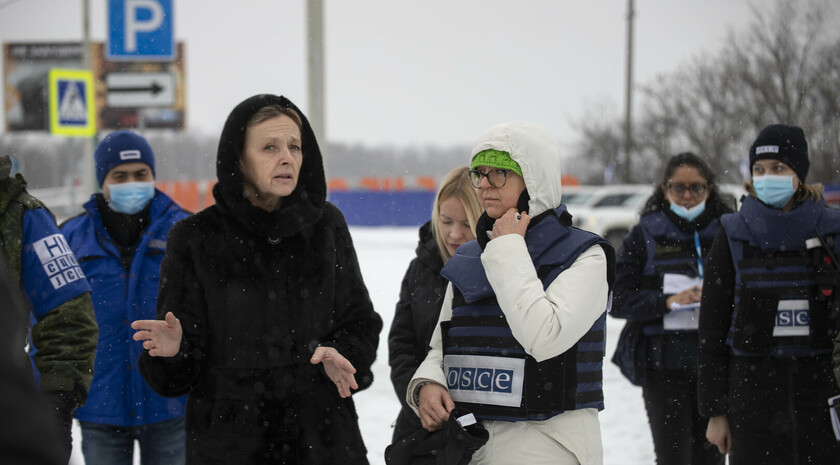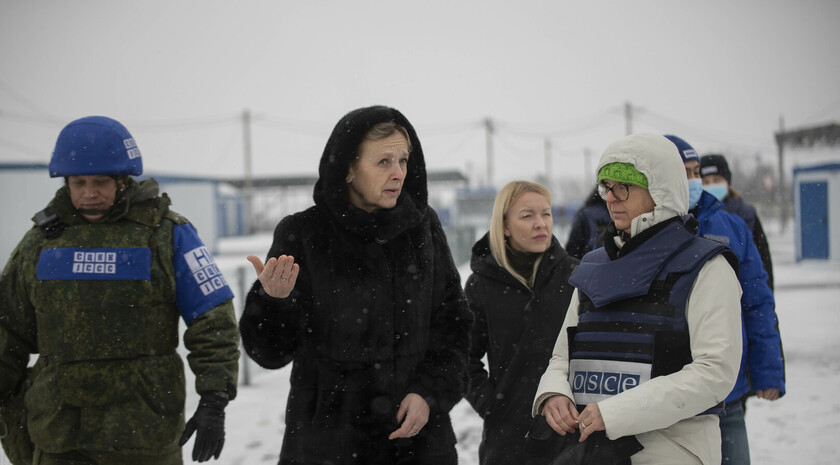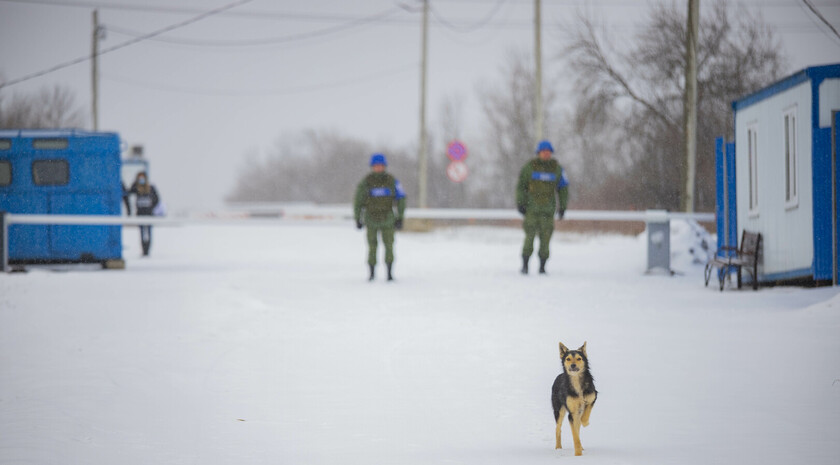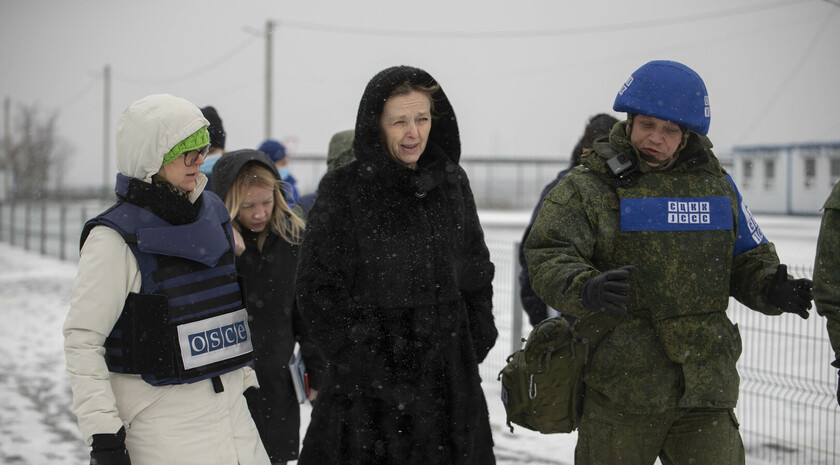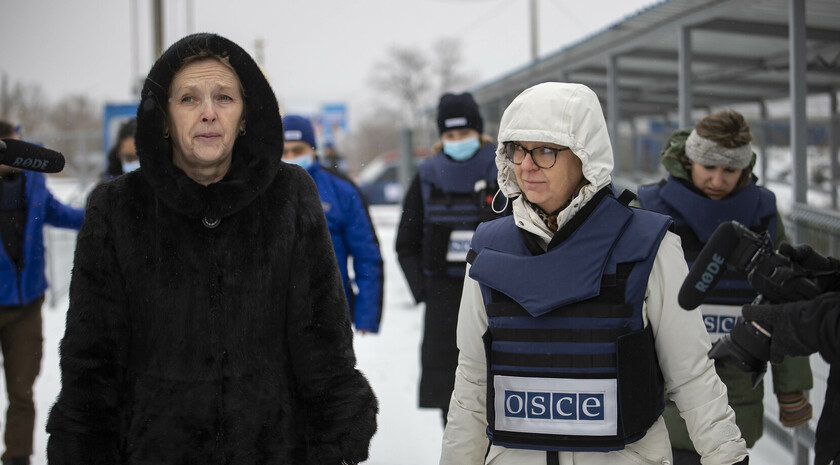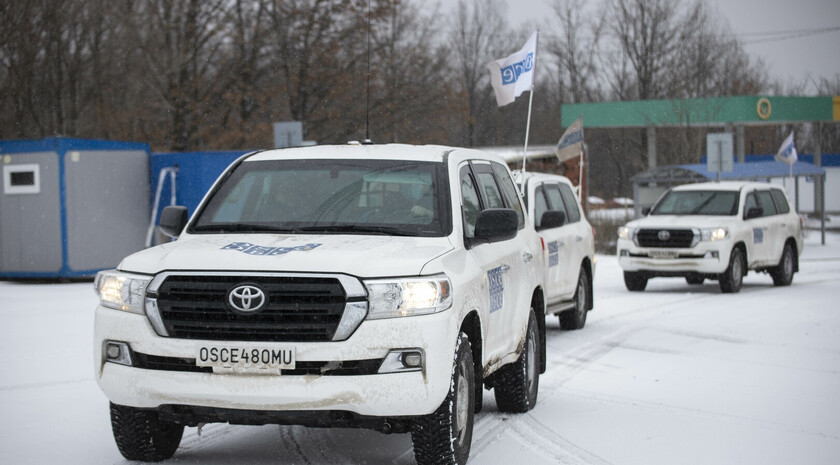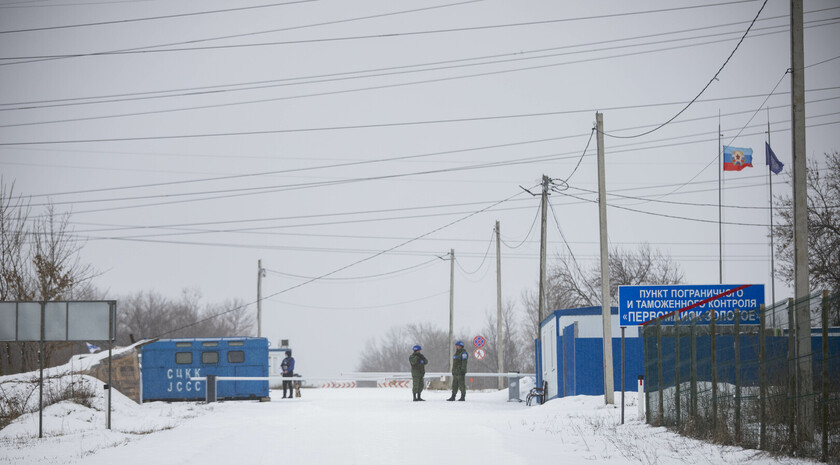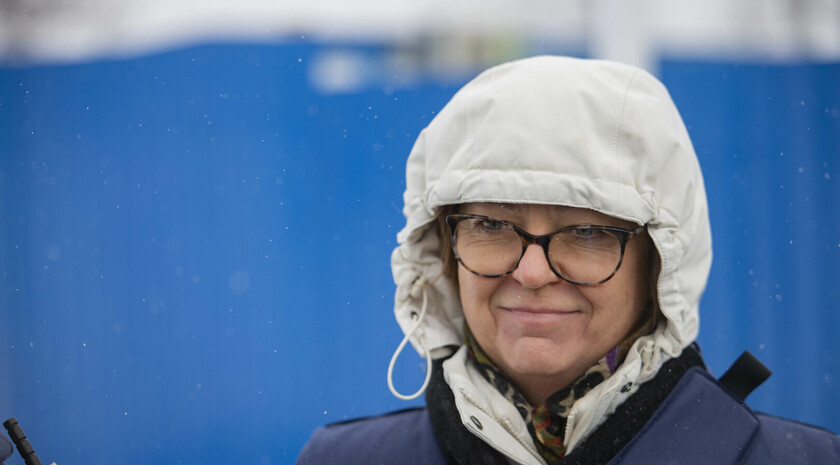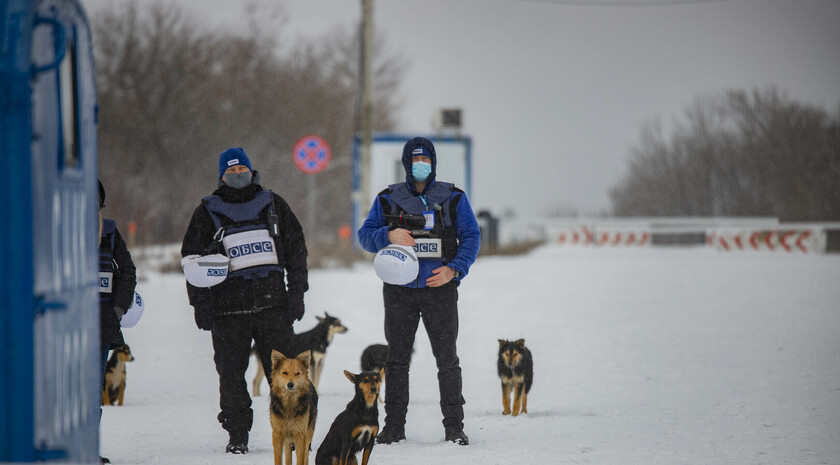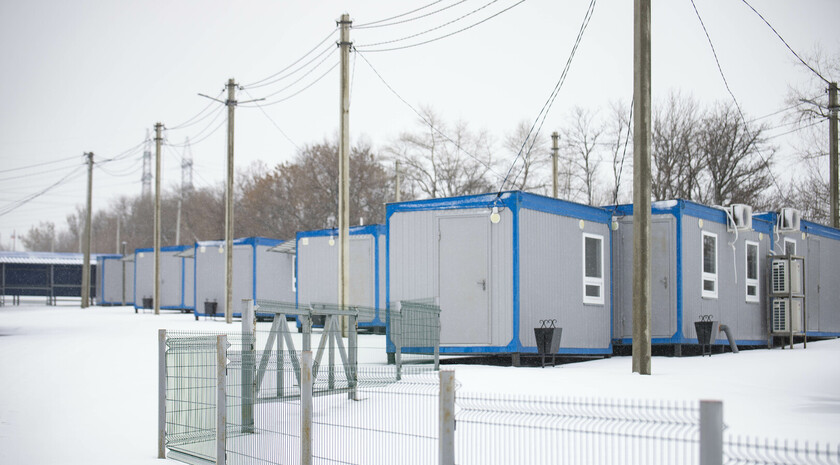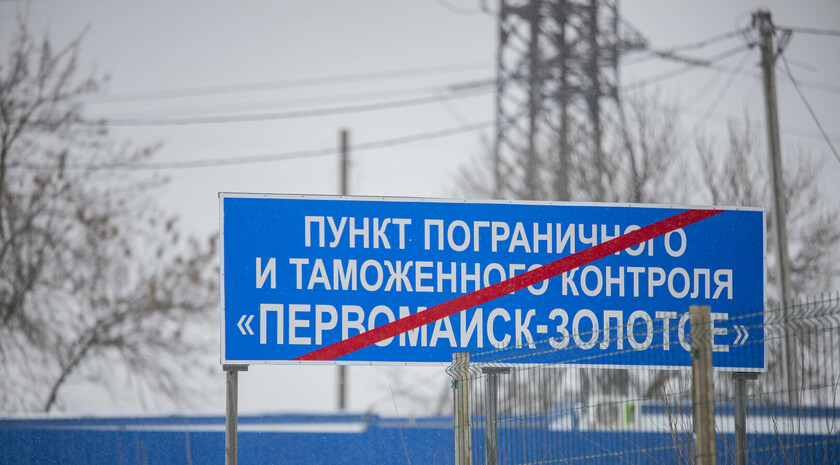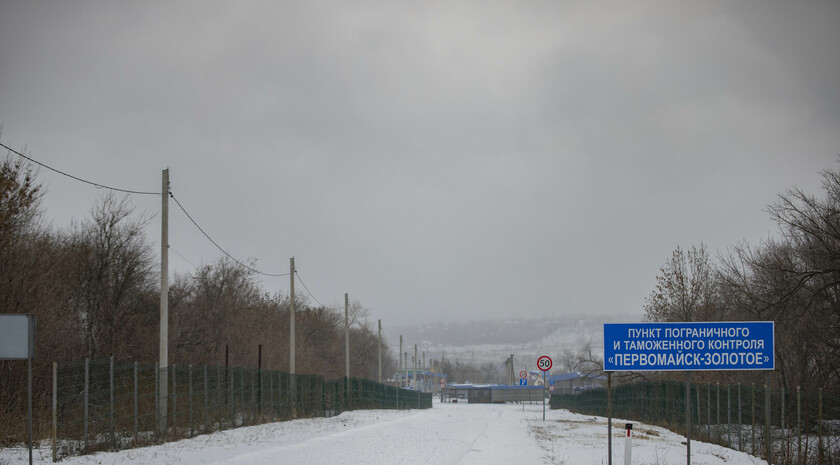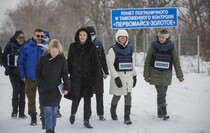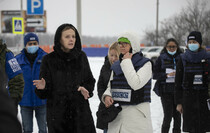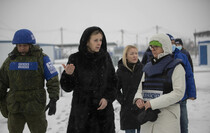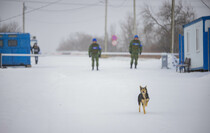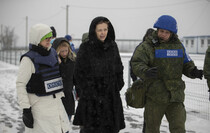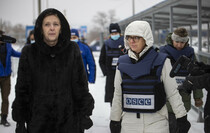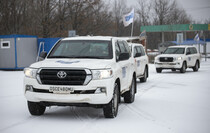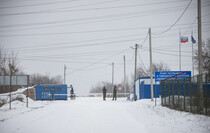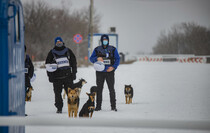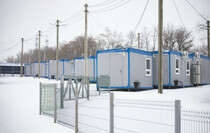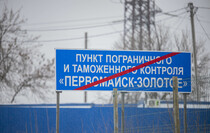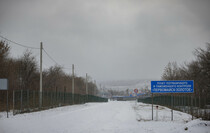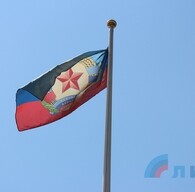Coordinator of the Contact Group subgroup on humanitarian issues for the OSCE Charlotta Relander, on a visit to the Lugansk People's Republic, inspected the Lugansk-Schastye and the Pervomaisk-Zolotoye crossing points which are ready to be launched.
Accompanied by the LPR representative in the subgroup, head of the Republic’s working group on prisoner exchange Olga Kobtseva, Relander saw the crossing points’ infrastructure and equipment and inquired about their throughput capacity.
The coordinator talked with LPR officers at the Joint Centre for Control and Coordination and inspected the advance bases which the LPR Office at the JCCC had set up next to the crossing points. In the course of the inspection, Relander saw no armaments, military equipment or any defense works on their premises.
“We understand that the checkpoints are certainly important to people and expect the parties (to the talks) to find a solution (to open the checkpoints),” Relander said. “As for the infrastructure I saw, I believe it’s ready to be launched.”
The humanitarian subgroup discusses the opening of the new crossing points but the decision has to be made by the parties to the negotiations, she added.
“My role is not to tell who’s right or who’s wrong, I’m just a coordinator; the decisions are made by the parties (to the talks), the OSCE representative said.
Kobtseva said that the Republics had long been ready to open new checkpoints but that the issue had had not been settled up to date through Ukraine’s fault.
“Today’s the second day of Mrs Relander’s sojourn in the LPR territory,” she said. “She has seen the infrastructure of the Lugansk_Schastye and Pervomaisk-Zolotoye crossing points. For our part, we showed the checkpoints’ readiness for operation,” she said.
“It is necessary to relaunch the security guarantee mechanism in order to open the new crossing points,” Kobtseva said. “It (the mechanism) was ruined from the moment of the abduction of our officer at the JCCC Mr Andrey Kosyak. First of all, Ukraine has to return Mr Kosyak, then restore the mechanism of security guarantees between Ukraine and the LPR and only then we can talk about launching the crossing points.”
Earlier, she said that Relander, at a session of the Contact Group humanitarian subgroup, tried to avoid the discussion of the issue of the release by Ukraine of the LPR monitor at the JCCC who had been abducted by Ukrainian forces.
In March 2020, the LPR and Kiev reached an accord to launch two new crossing points in the Schastye and Zolotoye areas. The works to develop the facilities began in July. Having failed to coordinate with the LPR a number of key points in the crossing points operation, including security issues, Ukraine unilaterally opened both crossing points on November 10. The Republic called it a provocation that threatened the life and health of persons who crossed the contact line and demanded that Kiev begin a dialogue to remedy the problems that stood in the way of full-fledge checkpoint operation. Currently there is only one official checkpoint on contact line in the LPR area of responsibility in Donbass and it is accessible via the bridge in the vicinity of Stanitsa Luganskaya.
The Ukrainian government launched the so-called anti-terrorist operation against Donbass in April 2014. Conflict settlement relies on the Package of Measures for the Implementation of the Minsk Agreements, signed on February 12, 2015 in the Belarussian capital by the Contact Group members and coordinated by the Normandy Four heads of states (Russia, Germany, France and Ukraine). The UN Security Council approved the document by Resolution No 2202 of February 17, 2015 and called upon the parties to ensure its implementation. The document provides for comprehensive ceasefire, withdrawal of all heavy weapons from the contact line, starting a dialog on reconstruction of social and economic ties between Kiev and Donbass. It also envisages carrying out constitutional reform in Ukraine providing for decentralization and adopting permanent legislation on a special status of certain areas of the Donetsk and Lugansk regions.
To facilitate the work of the Contact Group, four working groups were set up under its aegis to deal with issues of security, politics, return of internally displaced people and refuges, as well as with social, humanitarian, economic and rehabilitation issues. *i*s
